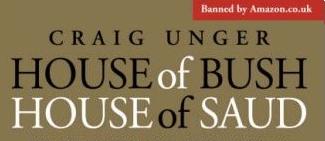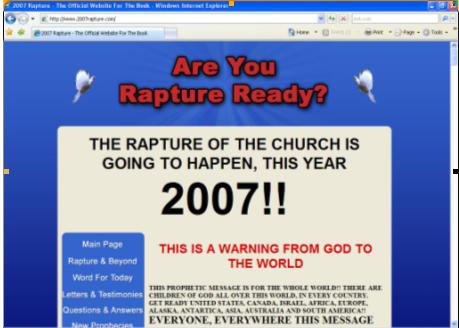A bit of hysteria from Alyssa Lappen at International Analyst Network:
Unless the U.S. Congress and New York legislatures act immediately to stop them, foreign terror financiers and libel tourists now can essentially impose sharia (Islamic) law on American writers and publishers.
This is foolish demagoguery. Lappen is referring to a New York court judgement that was made just before Christmas concerning US author Rachel Ehrenfeld and Saudi businessman Khalid bin Mahfouz, whom she (along with a number of other authors from across the political spectrum) has accused of terrorism funding. Bin Mahfouz chose to sue Ehrenfeld through the London High Court, taking advantage of the UK’s notoriously restrictive libel laws, and won a default judgement. Although Lappen quotes a restrictive definition of slander from an Islamic source, “sharia” has absolutely nothing to do with the case at hand, and one wonders why she thinks this hyperbole is in any way helpful.
The December New York court decision was the result of a counter-suit brought by Ehrenfeld against bin Mahfouz. The judgement summarises her complaint:
Plaintiff alleges that the process server who visited her on March 3 [2005] threatened her, stating: “You had better respond, Sheikh bin Mahfouz is a very important person, and you ought to take very good care of yourself.”…In an affidavit, the process server stated that plaintiff “grossly misrepresented” their meeting.
…In addition, plaintiff claims that the ongoing threat of enforcement in New York has led her to decline publishing certain articles and to attempt to conform her writing to the standards of English libel law. Plaintiff also asserts that the alleged chill caused by the English judgment has been felt by certain publishers who have accepted her work in the past, but decline to do so now for unspecified reasons, and by other authors engaged in the investigation of international terrorism whom she alleges must now tailor their writing to avoid foreign libel suits.
However, despite the First Amendment issues arising from this, the court decided that it would be concerned only with the narrow question of whether it had jurisdiction over bin Mahfouz, and it decided that it didn’t. The ruling does not mean that the New York court supports the British libel judgement – much less an Islamic interpretation of “slander” – or that bin Mahfouz would not face serious obstacles should he try to collect his damages in New York.
Ehrenfeld’s case tried to make use of Yahoo’s lawsuit against La Ligue Contre Le Racisme et L’Antisemitisme to establish jurisdiction, despite the fact that that suit had been ultimately dismissed. The ACLU has a piece on that case:
In November 2000, a French court said it would fine Yahoo approximately $13,000 per day unless it took action to prevent French Web users from gaining access to Nazi-related materials, including memorabilia up for auction on Yahoo.com.
…Yahoo filed suit, Yahoo!, Inc. v. La Ligue Contre Le Racisme et L’Antisemitisme, and asked the U.S. district court to rule the French judgment unenforceable in the United States because it violated the company’s free speech rights.
The district court [in California] held that it had personal jurisdiction over the two French organizations, and that enforcement of the French order by an American court would violate the First Amendment. The French organizations filed an appeal with the Ninth Circuit, but appealed only the ruling on personal jurisdiction.
…Relying in part on the important First Amendment issues raised by the case, an 8-3 majority of the 11-member en banc panel hearing the case held that the district court did have personal jurisdiction over the French litigants.
However, three members of the eight-member majority favored dismissing the case because it was uncertain whether the French court would actually enforce its order. When their three votes were added to the three votes of the judges who said the case should be dismissed because there was no personal jurisdiction, the result was a 6-5 majority in favor of dismissal. Thus the case was dismissed.
…The ACLU-NC believes that if a foreign person or entity takes affirmative steps both in a foreign court and in the United States to force a U.S.-based speaker to censor constitutionally protected speech, U.S. courts have jurisdiction to protect that speech.
(We’ll leave aside the hypocrisy of Yahoo, an organization which colluded in the jailing of a Chinese dissident, making a stand for free speech)
The New York judgement has drawn fire from Ehrenfeld and some other commentators. She writes:
Falling to protect my rights for freedom of speech under the Constitution’s First Amendment laws, the New York Court of Appeals, opened the door to those wishing to curtail the U.S. press and media willingness and ability to freely investigate and report on matters important to our survival as a free nation.
Solicitor Mark Stephens, a media law specialist partner with London law firm Finers Stephens Innocent , who also represents the WSJ is quoted by a British legal publication saying: “New York court’s decision was “obviously wrong” and not merits-based.”
…The New York Sun newspaper reported the decision by saying the State’s highest court had “turned down a chance to protect American authors from libel judgments awarded by foreign courts”.
The newspaper quoted Boston lawyer Harvey Silvergate, who has written on the case, as saying that “The New York Court of Appeals could have done a better job of protecting our Constitutional rights than it did here with this rather technical opinion.”
Perhaps a bit of a concerted effort from across the Atlantic would be in order as well: in the UK we’ve recently seen libel threats being used to suppress legitimate discussion of public figures such as the blogger Paul Staines (a supposed “libertarian”) and the Uzbek billionaire Alisher Usmanov (in the latter case the attempt was a dismal failure).
Meanwhile, it’s interesting to see that Craig Unger’s House of Bush, House of Saud, which in the UK proudly bears the label “banned by Amazon.co.uk” is actually available from second-hand merchants on that website, and I’ve seen the book available in Waterstones.

UPDATE: It seems Lappen got her idea from Jed Babbin, editor of Human Events. According to Babbin,
Under assault by Muslims and multiculturalists, free speech and freedom of the press are dead in Britain…
Actually, I can think of all kinds of people who have undermined free speech in the UK by resorting to repressive British libel laws – and most of them are certainly not Muslims.
Filed under: Uncategorized | 5 Comments »




